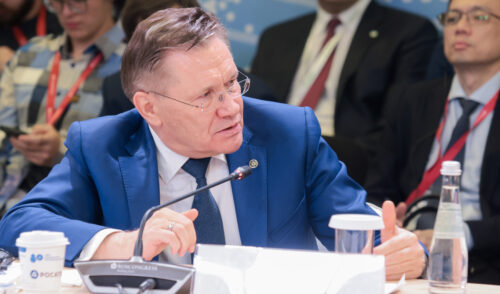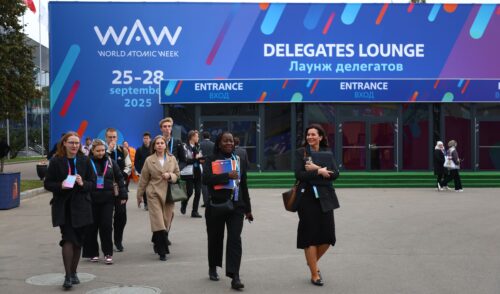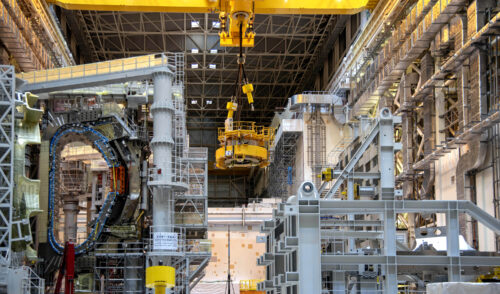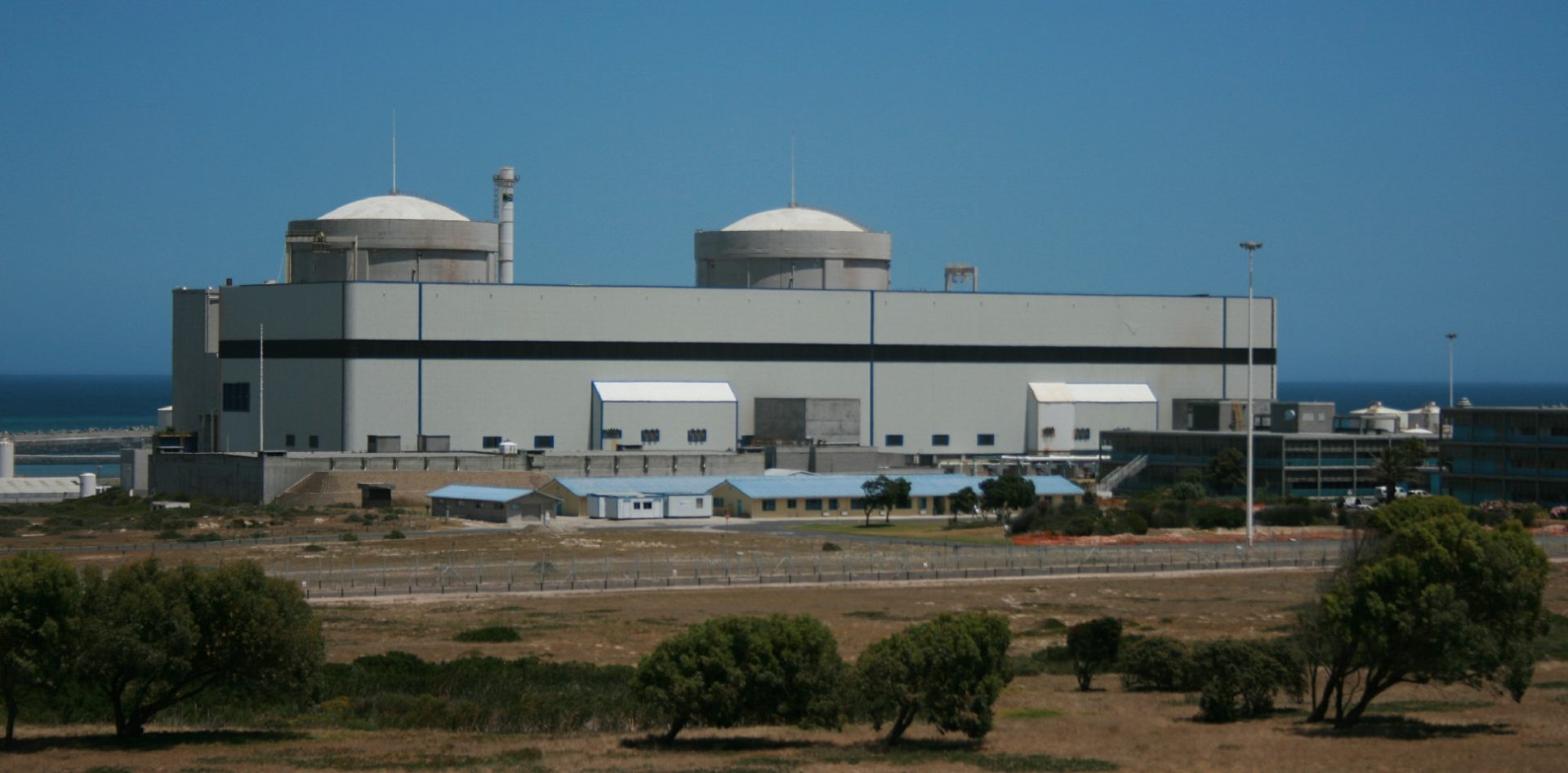
Inspiring Nuclear Future
back to contentsSouth Africa was one of the key participants of the Russia-Africa summit held in July in St. Petersburg, Russia. (Find out more about the forum in this issue.) On the sidelines of the summit, Rosatom Newsletter talked to the Project and Technical lead for the Decommissioning Projects at Necsa. Amanda Mbhele talked with us about the nuclear industry in South Africa and whether it was difficult to popularize nuclear power in the country.
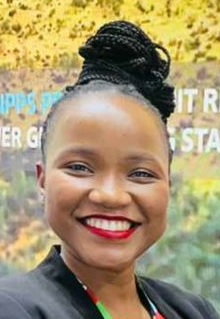 Amanda Mbhele is the Project and Technical lead for the Decommissioning Projects at Necsa, the South African representative in WiN Global Young Generation. She also holds a Master’s degree in Nuclear Power Engineering from South Korea. Amanda has a holistic understanding of the nuclear fuel cycle and major engineering projects. Having worked for the IAEA as a Spent Nuclear Fuel Management Project assistant, Amanda has addressed the fears and myths surrounding the back-end nuclear fuel cycle, mainly spent fuel and radioactive waste management in South Africa. Additionally, she has been working as a volunteering Science Communicator, particularly in Nuclear Science & Technology communications. Finally, she is a Vice-Chairperson of Ultimate Dream Foundation, which runs the Africa4Nuclear Campaign.
Amanda Mbhele is the Project and Technical lead for the Decommissioning Projects at Necsa, the South African representative in WiN Global Young Generation. She also holds a Master’s degree in Nuclear Power Engineering from South Korea. Amanda has a holistic understanding of the nuclear fuel cycle and major engineering projects. Having worked for the IAEA as a Spent Nuclear Fuel Management Project assistant, Amanda has addressed the fears and myths surrounding the back-end nuclear fuel cycle, mainly spent fuel and radioactive waste management in South Africa. Additionally, she has been working as a volunteering Science Communicator, particularly in Nuclear Science & Technology communications. Finally, she is a Vice-Chairperson of Ultimate Dream Foundation, which runs the Africa4Nuclear Campaign.
Amanda, please tell us about yourself?
I am a nuclear engineer. Currently, I work as a technical lead for nuclear facility decommissioning projects, and I am also volunteering as a science communicator to raise nuclear science awareness.
What is it like to be a female working in the nuclear industry in South Africa? Do you have any challenges or do you find it particularly interesting?
Before I came to work in the nuclear industry, I had worked as a geology assistant, which is a male-dominated field. So there was no difficulty for me when I moved to the nuclear sector. In addition, in my opinion, South Africa, compared to other African countries, has made great progress in gender equality and inclusion. In our country, women have many opportunities to build a career. For example, our government has adopted regulations according to which every organization must have females in top management. These are all very inspiring initiatives.
Could you give us a little bit of a background on the nuclear power in South Africa? Where do you think South Africa currently stands?
Today, we have one nuclear power station, it is Koeberg in Cape Town, which operates two PWR reactors with a total capacity of 1,880 MW. The first unit was launched in 1984 and the second unit in 1985. South Africa is experiencing an energy shortage, which is growing every year. Personally, I believe that nuclear power is the solution to many energy problems. Recently, our government has unveiled a new energy plan, which provides for the inclusion of 2.5 GW of nuclear power. They have also requested additional information on the technology, which means they want to move forward with the nuclear plans in South Africa. The future of nuclear energy as part of our energy mix is promising.
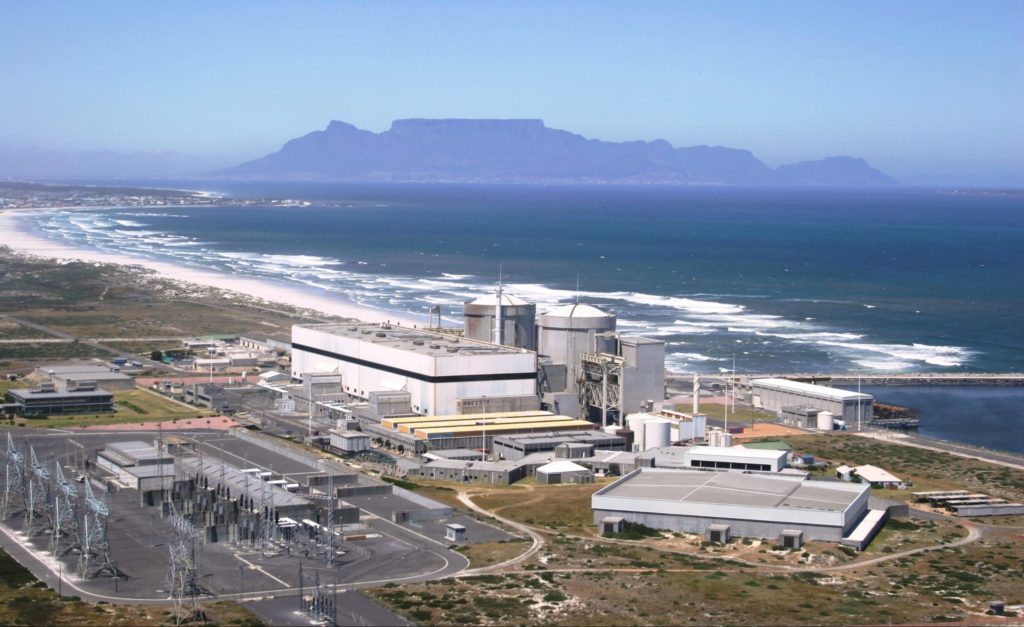
Despite a long history in South Africa, it seems that nuclear power faces opposition in the country. What do you think is the reason for that?
Unfortunately, people have no idea what nuclear is and the advantages that nuclear power brings. For the majority, nuclear is associated only with bombs. I know from my personal experience as a Science Communicator volunteer that every time I talk about nuclear medicine, radiation treatment of food, nuclear energy and others, people get amazed. They have no clue about these things. Therefore, I think the key is raising awareness, fostering effective nuclear communication to all parts of our communities, including the professionals. We just need to let people know what nuclear can bring and the stability it has, especially when it comes to power generation and energy security.
I try to take part to the best of my abilities in spreading knowledge about nuclear science and technology. Additionally, I’m a member of the Nuclear for Climate delivery team, a global network aiming to raise global awareness about the role of nuclear power in addressing the climate challenges.
What tools can be used to popularize nuclear technologies?
Many people, especially the youth, use social media like Tik Tok or YouTube. In order to speak the same language and reach a wide audience, we use these platforms. We try to talk about complex things like nuclear power in a simple and interesting way in order to engage as wide an audience as possible. We make people relate to nuclear and highlight their daily use of nuclear-related things.
We have the Africa for Nuclear channel on YouTube where we post short 15–20 minute videos on different nuclear topics. These videos are very popular and accessible to everyone globally.
And what about the older generation? How do you reach those people?
The older generation comprises a small part of the population, but it is still necessary to work with them. From my experience, this is the most difficult audience to popularize knowledge about nuclear. Previously, the nuclear program in our country was classified, so typically, the older generation knows very little about it and most of that population is of African descent. In addition, these people do not use social networks. Therefore, our team members travel to villages and explain nuclear to the elderly in a simple language with clear examples.
Please share your impressions about the forum?
I am very glad to have had the opportunity to participate in the Russia-Africa Summit, where I learnt a lot of new things. For example, one of the promising ideas that I have heard is the creation of centralized energy systems in Africa. This will provide extensive opportunities for the development of different countries. There were also plans for the development of nuclear energy, the construction of new nuclear power plants and research reactors. All these progressive ideas will lead Africa forward, help it to industrialize, as well as achieve most of the Sustainable Development Goals. All this is very inspiring.


